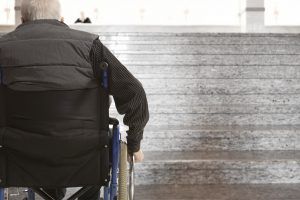Emergency Preparedness Plans are Crucial to Nursing Home Residents’ Safety

The recent series of hurricanes and damaging storms has shone a light on the importance of disaster planning, especially for nursing homes and assisted living facilities, where elderly residents are often unable to fend for themselves in an emergency.
The “Medicare and Medicaid Programs; Emergency Preparedness Requirements for Medicare and Medicaid Participating Providers and Suppliers” Final Rule (81 FR 63860, Sept. 16, 2016) (“Final Rule”) established national emergency preparedness requirements for participating providers and certified suppliers to plan adequately for both natural and man-made disasters.
The regulation defines an emergency or disaster as “a hazard impact causing adverse physical, social, psychological, economic or political effects that challenges the ability to respond rapidly and effectively.” A disaster is a situation or event that affects a larger area on a far greater scale than an emergency, such as a hurricane or major coastal storm.
The Emergency Preparedness Program should document how a facility plans to meet the health, safety and security needs of the facility, the staff, the residents or patients and the community prior to, during and after an emergency or disaster.
A comprehensive emergency plan should include four key elements:
- Comprehensive risk assessment
- Policies and procedures
- Communication Plan
- Training and Testing Program
The risk assessment serves as the foundation of an effective disaster plan. It should take into account the risks specific to a facility’s geographic area as well as the risks posed by the population residing within the facility. While Illinois is not a frequent target for hurricanes and coastal-related floods, Midwest states are subject to harsh winters, hot and humid summers and periods of heavy rainfall that can cause flooding, power outages and other weather-related emergencies. Regarding the specific population, an evacuation plan for an elementary school or office building will be far different from that of a nursing home, where many of the residents may have mobility limitations and medical issues.
The “Final Rule” requires facilities to coordinate their emergency plans with existing Federal, state, tribal, regional and local emergency preparedness systems, so provisions for this interaction should be included in the policies and procedures and the communication plan.
While a nursing home may submit plans for training and testing procedures in order to meet government requirements, these plans can be useless without oversight and enforcement to make sure the plans will actually work when an emergency or disaster strikes.
A recent article published by the AARP cited a review of government records that revealed 2,300 violations of emergency planning regulations; nearly 1,400 nursing facilities were cited for neglecting to maintain emergency power generators.
“If so many nursing homes are failing to perform even the most routine maintenance on their emergency equipment, what does that say about the safety of this vulnerable population in case of a real emergency?” says Mark Bernstein of 1-800-MALPRACTICE.
While some lawmakers are pushing for more stringent regulations in this area, monitoring and enforcement of emergency plans will require government resources that are already stretched.
Family members that are researching nursing homes can do their part by asking detailed questions about the facility’s emergency plans.
- Are there regular fire drills?
- Is new staff trained in emergency procedures before they begin working?
- Is there an evacuation plan and is that plan practiced so residents and staff will be prepared for an actual emergency?
- How often are the generators and other emergency equipment serviced?
“Questions like these will let the nursing home know you are aware of what should be taking place to ensure your loved one’s safety,” said Bernstein.
Despite well-intended precautions, abuse and neglect occurs in many nursing homes. If you believe a loved one is being hurt or neglected, intentionally or not, contact us immediately. Our team of experienced nursing home lawyers will investigate the situation and help ensure that your loved one is safe and that you get the compensation you and your family deserve. Call us today for a free consultation. 1-800-MALPRACTICE
Sources:
https://www.aarp.org/caregiving/local/info-2017/nursing-homes-updates.html


